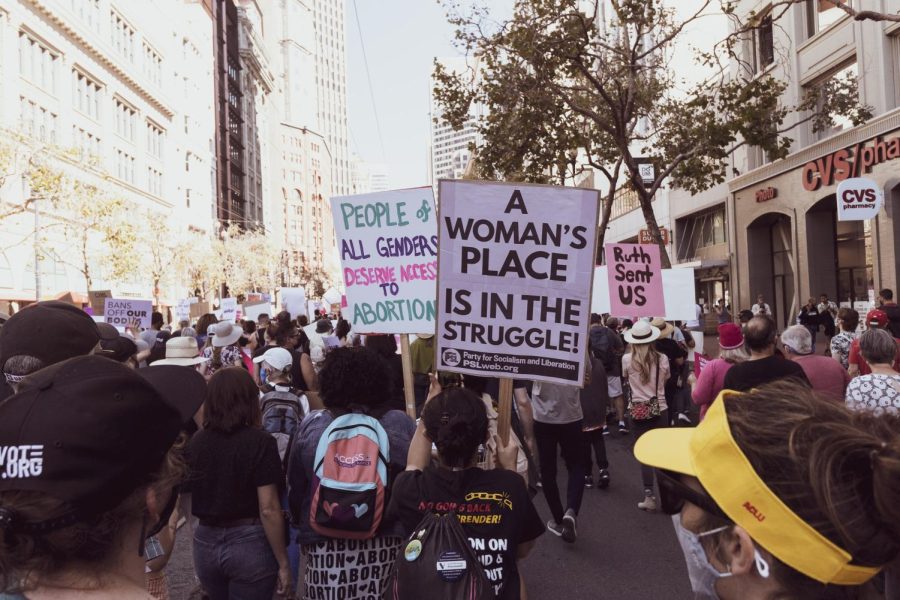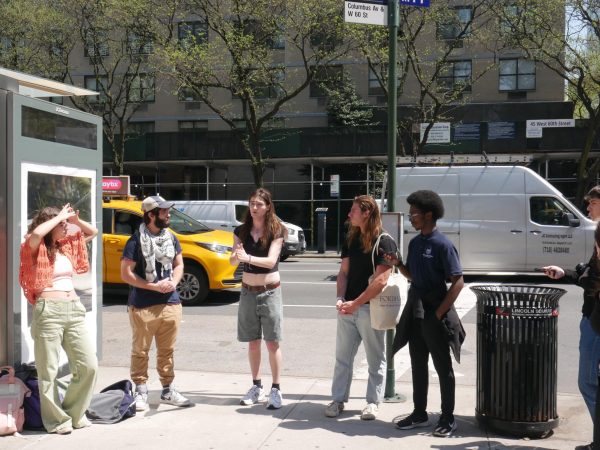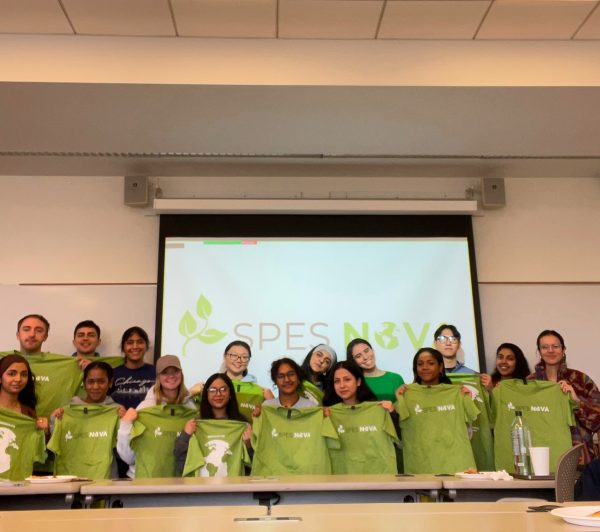Domestic Violence Awareness Month at Fordham
October is nationally recognized as Domestic Violence Awareness Month, a period dedicated to the acknowledgement of “mourning those who have died because of domestic violence, celebrating those who have survived and connecting those who work to end violence,” according to The National Center on Domestic and Sexual Violence.
The United States has officially observed Domestic Violence Awareness Month since 1987. Each year the government passes new legislation in support of victims with the goal of eventually eliminating domestic violence according to the The National Center on Domestic and Sexual Violence.
On Oct. 5, 2021, the United States Department of Justice announced that the Office on Violence Against Women would “invest more than $476 million in grants to address domestic violence, dating violence, sexual assault and stalking.”
While domestic violence impacts individuals nation-wide, college students, particularly college-aged women, are especially vulnerable to experiencing domestic violence. According to Partnership Against Domestic Violence “college-aged women (between the ages of 16-24) have the highest per capita rate of intimate partner violence.”
The New York State Department of Health lists that “1 in 5 women and 1 in 16 men will be sexually assaulted while in college” with “more than 50% of college sexual assaults occurring [from] August to November.”
There are many potential reasons why college campuses experience a spike in the number of domestic violence cases. The Partnership Against Domestic Violence emphasizes the isolation and variety of barriers college students face. “College students often feel trapped by their social networks and the relatively closed environment of many campuses. Being away from home may cause students to feel isolated from their personal support networks and resources for help.”
Cases of domestic violence have been especially prevalent in the recent national news cycle. On Oct. 13, 2021, NBC10 Philadelphia News reported that a student from the University of Delaware was convicted of sexual assault after the university’s initial response caused uproar amongst students.
Additionally, the murder of Gabby Petito has massed the nation’s attention after details of the domestic dispute with her late fiancé, Brian Laundrie, emerged earlier this month according to CNN.
COVID-19 also played a large role in the increasing number of domestic violence cases over the past year. According to TIME Magazine, “Growing evidence shows the pandemic has made intimate partner violence more common — and often more severe.” TIME also emphasizes the disproportionate impacts of domestic violence on same-sex couples, as well as communities of color “with systemic inequities often meaning lower income and less access to social and private services.”
Farah Elrakhawi, FCRH ’24, chairperson of the USG Committee on Sexual Misconduct (CSM), said that the committee will be honoring the month with a Week of Action taking place the first week of November. The Week of Action will include a variety of projects and demonstrations including “The Clothesline Project, a self-defense class, a speak out, a presentation on bystander intervention in partnership with the Bronx DA’s office, as well as tabling with resources and flyers.”
Elrakhawi said the Committee on Sexual Misconduct is eager to return to in-person events after transitioning to an entirely virtual Week of Action during COVID-19. “We’re having in-person meetings again, so engagement and conversation facilitating is so much better.” However, the committee decided to continue the more anonymous submission process that was adapted during the pandemic, said Elrakhawi.
“I feel like there are a lot of questions up in the air about the reporting process in general and how the university handles cases of sexual misconduct,” Elrakhawi said.
Due to new legislation that was passed under the Trump administration, cases of sexual assault that occur off campus are no longer under Fordham’s legal jurisdiction, Elrakhawi said.
The university now relies on two separate processes to address cases of sexual assault including the Campus Assault and Relationship Education Office (CARE) as well as the Gender Equity and Title IX Office.
In response to the new legislation passed, Fordham “dedicated the CARE program to handle off-campus incidents and the Title IX Office to respond to on-campus cases,” Elrakhawi said.
Elrakhawi expressed disapproval of the new legislation which requires that “on-campus cases handled through the Title IX Office must go through a live interview process with the victim and the assailant in the same room.” The Committee on Sexual Misconduct “vehemently pushed back on these regulations” Elrakhawi said. “We never want to place more barriers on reporting.”
According to Fordham’s official website, “the University provides Confidential Resources, who are trained administrators and staff members available to those community members who do not wish to report their experience,” including Counseling and Psychological Services, University Health Services and the Office of Campus Ministry.
The Fordham University Website also lists a variety of services available through the CARE program including Care Connect, “a resource to rapidly deliver information related to sexual misconduct to your phone or other mobile device, 24 hours a day, 7 days a week, from anywhere.”
While Care Connect is not a reporting system, students can use this resource to access information available in the CARE brochure, the website states.
Victims of sexual assault, stalking, domestic violence, dating violence or other prohibited sexual misconduct are encouraged to report their incident by calling the Department of Public Safety, whose numbers are listed on The Fordham University Title IX Office website.
In place of a phone call, students may fill out the Public Safety Online Incident Report available on the Title IX Office web page.











































































































































































































